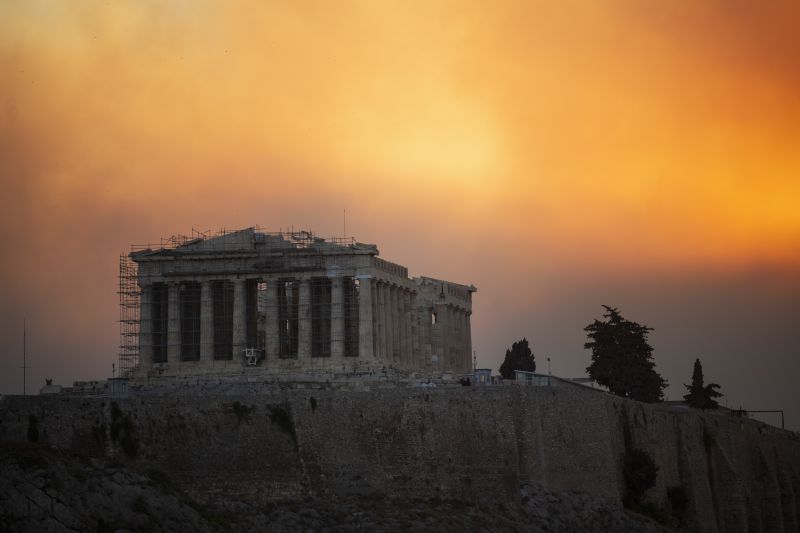The magnitude of the recent wildfires ravaging parts of Greece has prompted a massive evacuation order near Athens, illustrating yet another climatic challenge that is putting immense strain on the country’s emergency response system. This disaster, escalating amid the backdrop of a perilous heatwave, has necessitated the quick reaction of Greek authorities determined to prevent unnecessary loss and damage.
The recent wildfires, most notably in the areas surrounding Athens, the capital of Greece, have evoked haunting memories of the 2018 fires that claimed nearly 100 lives in the coastal town of Mati. Control of the situation has been complicated by the fierce winds propelling the flames. The use of water-dropping aircraft has also been hindered due to low visibility in the dense smoke, a situation that vividly underlines the gravity of the ongoing crisis.
The deterministic role of Greek authorities attempting to contain the wildfires cannot be overstated. The evacuation orders have been a pronounced aspect of this strategy. Utilizing various mediums of communication, Greek officials have encouraged local residents to evacuate their homes and move to safer locations. Efforts have also been made to offer public spaces, such as stadiums and other amenities, as temporary refugee points.
The firefighting teams in Greece have shown tremendous tact, courage, and agility in their response to the hazardous situation. Teams from several other European nations have extended their support to Greece at this critical moment. Notable contributions have been made by Sweden, France, Switzerland, and Romania, further underlining the importance of unity and cooperation in the face of such dire crises.
Emphasizing the urgency of the situation, evacuation orders have been issued for both locals and tourists. Greek authorities have called for individuals residing in, or visiting, threatened areas to move to specially designated spots. Meanwhile, an estimated 80% of Greece’s firefighting force has been deployed to the battlefront in an attempt to control the fires.
Evacuees, who consist of both Greek residents and foreign visitors, have shared harrowing accounts of their experiences in escaping the approaching wildfire. Anecdotes of leaving behind homes, businesses, and cherished belongings underscore the cruel reality this raging fire presents.
The wildfire situation becomes more pressing when it is analysed within the broader climate change debate. Persistent heatwaves, culminating in a rare 45 degrees Celsius heatwave that swept across Greece, have dried out the country’s forests, rendering them highly susceptible to wildfires. Such recurring extreme weather conditions not only exacerbate the wildfire problem but also remind us of the looming threat of climate change.
While the evacuation efforts in Athens and other afflicted parts of Greece have been commendable, the Greek authorities are coping with the overwhelming task of managing both immediate emergency intervention and the subsequent reconstruction. These contiguous threats poignantly illustrate the need for more effective worldwide engagement with the climate crisis.
Summing up, the wildfire tragedy has rocked Greece, necessitating urgent evacuation orders near Athens. While dealing with the immediate crisis remains paramount, this catastrophic situation warrants an intensive analysis, as it illustrates the far-reaching impacts of climate change. Accordingly, the Greek authorities’ efforts reflect a broader challenge – charting an effective response and putting recovery strategies in place to mitigate the increasing threats resulting from climate change.




